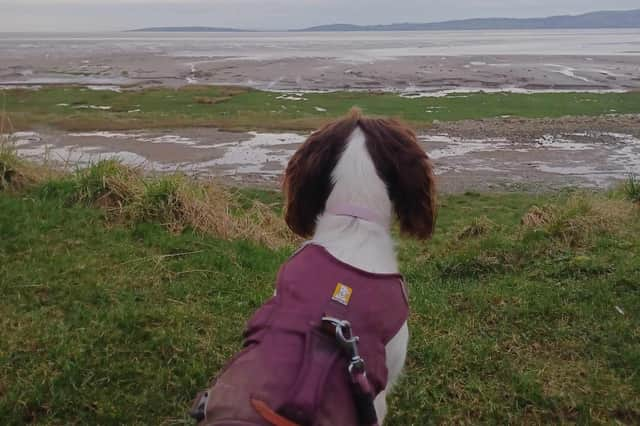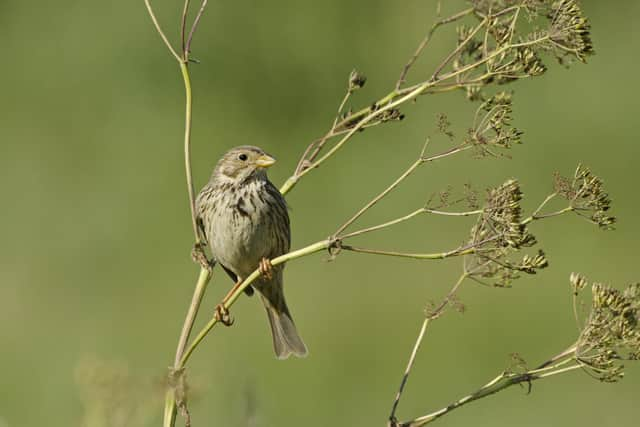Yorkshire Wildlife Trust encourages dog owners to keep their four legged friends on leads during nesting season


Unsupervised dogs can unintentionally cause harm to ground-nesting birds such as skylarks, lapwings, meadow pipits and woodcock, as well as other birds such as robins and dunnocks that nest close to the ground, so it is vital that they are kept under control.
Springtime brings with it the arrival of exciting migratory visitors which have travelled thousands of miles to nest at nature reserves throughout the UK.
Advertisement
Hide AdAdvertisement
Hide AdMany of these birds nest on or close to the ground, where they're particularly vulnerable to disturbance from dogs. This can lead to them abandoning their nests and losing their eggs or chicks. Some bird species are already struggling, and disturbance by dogs can make it even harder for them to survive.


Off-lead dogs have also been known to go for the occasional unexpected swim in ponds, rivers and other waterbodies. These areas are home to wildlife that dogs can disturb, such as voles, otters and newts, and there is also a risk of your pet getting injured. Dogs may also pollute waterbodies with chemicals used in flea treatments – these can be extremely harmful to aquatic life.
Becky Dennison, Reserve Assistant, said: “Grass Wood nature reserve is a popular and special site with lots of wonderful wildlife, but it includes some very sensitive species including song birds that can easily be disturbed by dogs.
“Nesting and fledgling birds are particularly vulnerable to disturbance - the eggs of the willow warbler are so tiny that they can be snaffled up or crushed in a moment without the owner noticing, and scaring a bird away from its eggs in poor or cold weather can lead to the eggs or chicks chilling to death very quickly.
Advertisement
Hide AdAdvertisement
Hide Ad"We implore everyone to please keep your dogs on leads, especially in spring when wildlife is at its most vulnerable; please do not allow them to run through the woodland undergrowth and out of sight or there is a very real risk that our spring woodlands could fall silent from much of their most beautiful birdsong.”
Yorkshire Wildlife Trust has also recorded multiple problems with dogs chasing grazing livestock, including two in 2023: one of the Trust’s Hebridean sheep was attacked at Stirley nature reserve near Huddersfield, requiring extensive medical intervention, and pregnant ewes were chased by off-lead dogs at Kilnsea Wetlands near Spurn.
Responsible dog owners can help wildlife if they:
- Keep dogs on short leads on nature reserves and in the wider countryside. Allowing dogs to worry livestock is against the law, under The Animal Welfare Bill.
- Only visit reserves with dogs under control where they are permitted and always keep to paths. Nature reserves are rare places where wildlife is given the priority.
- Clean up after animals and dispose of dog waste in bins or at home. Dog waste is dangerous for wildlife as it can carry diseases, scare away animals and increases nutrients in soils above healthy levels, affecting the natural balance of fragile habitats.
- Prevent dogs jumping in ponds; this can disturb aquatic wildlife, and insecticides found in dog flea treatments pollute waterways and kill wildlife too.
Dr Jenna Kiddie, Head of Canine Behaviour at Dogs Trust, said: “Dogs enrich our lives, but they also bring a level of responsibility. Whilst many of us enjoy taking our dogs for long walks, especially as it becomes a bit warmer, we urge dog owners to consider their surroundings, particularly when visiting areas where they might encounter wildlife.
"When visiting rural areas, owners should keep their dogs under control and ensure they do not worry other animals or stray from the path, as well as dispose of their dog's waste appropriately.
Advertisement
Hide AdAdvertisement
Hide Ad“We would advise keeping your dog on a short lead, and close to you, especially whenever livestock are nearby. It is important to remember that chasing is normal dog behaviour, and that any dog is capable of chasing, irrelevant of breed, type, age or size.”